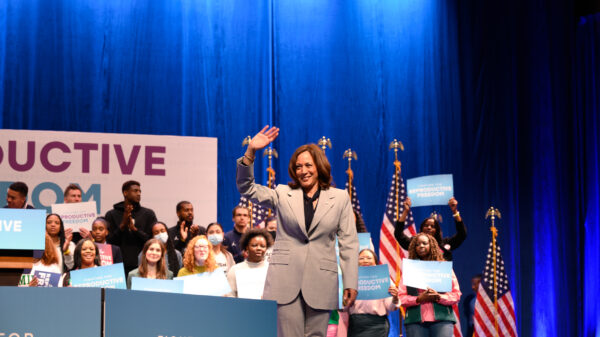
As college graduates with unpaid federal student loans resumed repayments last month, recent research shows that low homeownership rates are connected to student debt among low-income communities in the nation’s capital.
A new report by the Jain Family Institute and Economic Policy Institute reveals that student debt worsens mortgage difficulties and financial instability among young and middle-aged American workers.
After an administrative forbearance via the Federal Student Aid’s COVID-19 relief for student loans, which paused due payments and offered a temporary 0% interest rate between March 13, 2020, and Sept. 1, 2023, alumni are now expected to pay the debt they accumulated in college.
According to the U.S. Department of Education, 43.4 million borrowers had outstanding federal student loans in the third quarter of 2023. Amidst national discourse on debt relief and a Supreme Court order stymieing President Biden’s $400 billion student loan forgiveness plans in June, as reported by AP News, nonprofits and corporate philanthropists across the U.S. have made efforts to assist student borrowers tangibly.
In the Washington D.C. metropolitan area, the Washington Interfaith Network (WIN) stands at the front line, advocating for homeownership initiatives that leverage the student debt of native Washingtonians into mortgage dollars through its Building Black Equity Through Homeownership (BETH) program, which was launched in 2021.
WIN is a multi-faith, non-partisan advocacy organization comprising 50 congregations and non-profits, that is concerned with social and economic justice on different issues such as affordable housing, workers’ rights and public safety.
According to Celeste Bryant, a key leader of the BETH campaign, student debt worsens mortgage difficulties and financial instability among young and middle-aged American workers.
Bryant emphasized recent research linking student debt to low homeownership rates among low-income communities, a multidimensional issue necessitating urgent attention from stakeholders across private, public and nonprofit sectors.
“It’s vast,” Bryant said, detailing personal experiences with debt burdens despite a commitment to mobility and growth.
According to Bryant, this debt disparity partly informs the multiple undertakings of the BETH campaign: forums with district councilors and policymakers, partnerships with economic think tanks and research institutes, and dialogues with banks and mortgage lenders.
“University administrations and their financial aid officers play a big role in this,” Bryant said, noting that college students and faculty in D.C. are welcome to participate in BETH forums, and should advocate for accountability on their campuses.
Vinnae Collins, a senior economics major from California, agrees that colleges play a role in their graduates repaying accumulated debt and is particularly in favor of alumni donations and student loan forgiveness plans.
“How’s a school teacher with overdue student loans of over $100,000 buying a house for instance?” Collins rhetorically asked.
In an October report conducted in partnership with the Jain Family Institute (JFI) and the Economic Policy Institute (EPI), the BETH campaign substantiates such concerns. According to the report, a $10,000 increase in student debt corresponds to an 8 percent decrease in the likelihood of homeownership.
Eduard Nilaj and Kyle K. Moore, co-authors of the report, believe the notable decline in homeownership rates among young borrowers in D.C. – from 22.1 percent in 2010 to 13.7 percent in 2022 – is closely linked to the surge in student loan debt.
In a joint interview with The Hilltop, Moore and Nilaj described how the report was conducted using information from student debt holders via individual credit data, and then linked to demographic estimates gathered from surveys conducted by the U.S. Census Bureau.
According to Moore, the efforts of the October 2023 report published in partnership with the BETH campaign are expansive, but debt relief plans need more implementation from policymakers and university communities.
“Our work brings detailed information to light and puts it in the right framing,” Nilaj said.
For Collins, set to graduate in the spring of 2024 with over $70,000 in loans, debt is something she wishes to mitigate as she begins her investment banking career.
Noting disparities between students like her and debt-free legacy Ivy League graduates in the investment industry, Collins believes the political backlash against student loan forgiveness reeks of privilege rather than empathy.
Referencing the report, Bryant also highlighted that student debt forgiveness and eased lending criteria are keys to increasing Black homeownership.
For Moore, the stark racial wealth gap widened by student debt is alarming. When asked for a closing recommendation, he claimed he couldn’t give individual advice on student debt but reiterated the power of advocacy.
“The point is less about what an individual student can do than it is about creating mobility, a chance at financially healthy options and choices,” Moore said.
Copy edited by Alana Matthew









